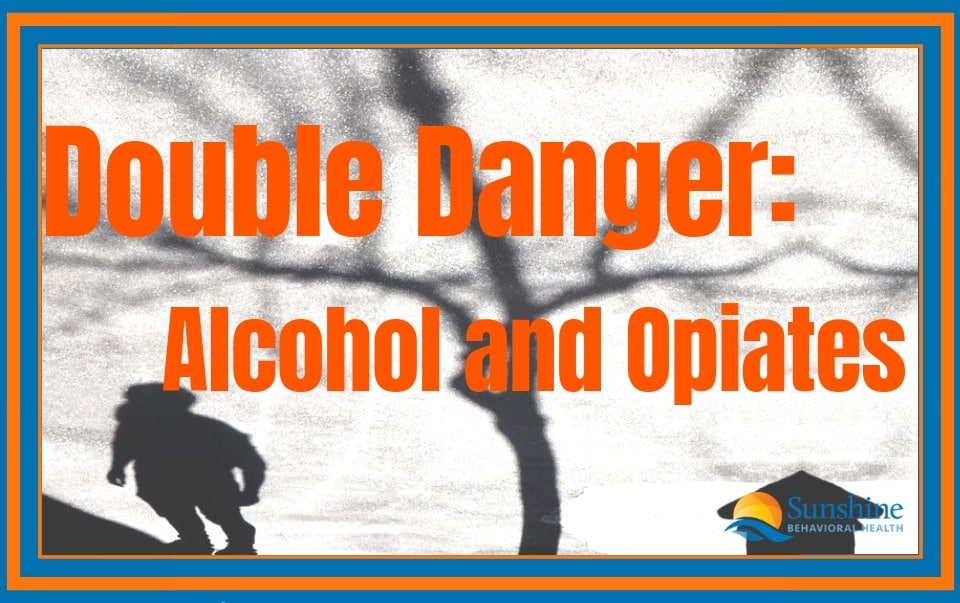
Addiction to a substance can lead to addiction to other substances. Take alcohol and opiates for example. Consumption of alcohol, even in small quantities can result in dangerous situations. These two substances do not interact well with each other inside the body.
Opiates Effects to the Body
Opiates can be semi-synthetic or synthetic. They are a group of powerful painkillers which can only be acquired through a doctor’s prescription. Some of the common types of opiates are hydrocodone, oxycodone, and morphine. There is a reason why they are heavily regulated in most of the countries in the world. Medically, they are used to help ease the pain resulting from severe injuries or illness. They are also used during surgical procedures. Opiates are extremely addictive in nature. They are also heavily misused, even by patients who have acquired prescription of this drug.
Effects of Opiates Mixed With Alcohol
A small amount of alcohol when mixed with opiates may result in a deadly consequence. The side effects can include nausea, vomiting, confusion, dizziness or loss of coordination, irregular heart rate, abnormal behavior, fainting, coma, and depressed breathing.
There can be many reasons why people take opiates with alcohol. In some cases, they are taken accidentally. When people do not have the knowledge of how these two substances affect the body, they tend to take them together in the hopes to feel better. But some accidents involving opiates and alcohol have resulted from people purposely taking both to enhance the euphoria of these substances cause.
The consequence of taking opiates and alcohol together stems from the activity that they both trigger in the central nervous system. They can slow down the heart rate, as well as a person’s breathing. And it can get deadly from there. The effects of these substances are aggravated by each other. Slowing of our breathing while our heart rate is down can deprive some parts of the body of oxygen. Without oxygen, the important parts of the body can start to shut down. The brain especially can get the worst damage. You can fall into a coma. Your breathing could stop. And in the worst case, this might even cause death.
Opiates are sedatives, and alcohol can enhance that effect. Severe drowsiness can result in loss of consciousness. Another side effect of taking opiates and alcohol together can be a loss of balance. People can also lose their coordination as a side effect. Older adults who are addicted to alcohol and opiates can also experience increased effects of dementia, and memory loss. For some people, these effects can negatively improve the way they live their life. It also makes other activities impossible to perform. If you are experiencing side effects, it becomes dangerous for you to drive.
Accidents resulting from opiate and alcohol intake combined happens often because it is a challenge for medical professionals to handle the regulation of both substances. When a patient is brought to the hospital because of a complication, doctors have different ways to extract the substance from the patient’s body. The removal of opiates from the body will not treat alcohol poisoning. Opiate is halted by Naloxone but will not have the same effect on alcohol. Normally for alcohol poisoning, doctors pump the alcohol from the patient’s stomach.
What to do When Someone Overdoses Because of Opiates and Alcohol
In cases where someone is suspected of overdosing, the smartest thing to do is to call an emergency response, as quickly as possible. If the patient is having mild side effects because of alcohol and opiate interaction, there are treatment centers that create a rehabilitation plan for the patient. They normally test the patient and provide a diagnosis based on them.
If the patient continues to take opiates and alcohol because of addiction, he will be continually at risk of having an overdose. The addiction can also greatly impact his way of life. People who have mental health disorders can also be at risk of being dependent on both substances. People with anxiety, depression, PTSD have been reported as some of the common victims of overdose. Even recovering patients have fallen back to the addiction because of this, if not given consistent care.
Recovery from Addiction to Alcohol and Opiates
Individuals and patients with addiction must be assisted to prevent the effects of opiates and alcohol. Some patients who are only addicted to alcohol fall further into additional addiction to opiates when the effects of alcohol could not give them satisfaction. They must be assisted from detox to aftercare by an experienced team of mental health professionals. This will not deepen the addiction, and improve their quality of life. Getting professional help to recover permanently is one of the best ways to prevent the double danger of alcohol and opiate addiction. Questions or concerns? If so, make sure to reach out to Sunshine Behavioral Health today.A Message From Our CEO
Medical disclaimer:
Sunshine Behavioral Health strives to help people who are facing substance abuse, addiction, mental health disorders, or a combination of these conditions. It does this by providing compassionate care and evidence-based content that addresses health, treatment, and recovery.
Licensed medical professionals review material we publish on our site. The material is not a substitute for qualified medical diagnoses, treatment, or advice. It should not be used to replace the suggestions of your personal physician or other health care professionals.





